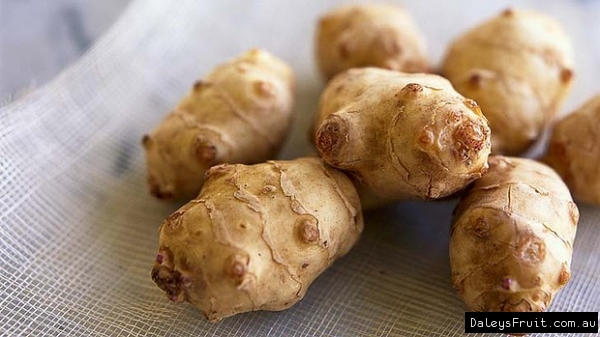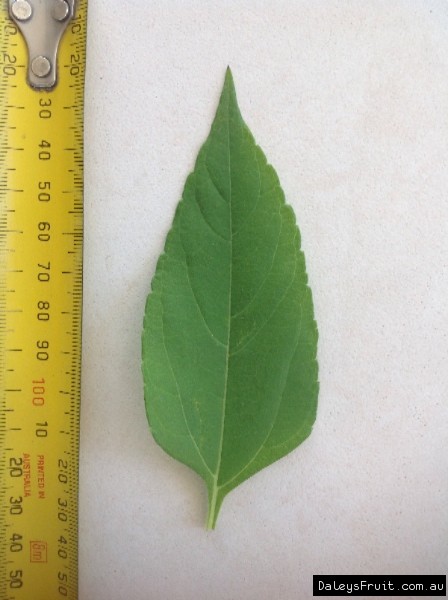Jerusalem Artichoke
Helianthus tuberosus$14.90 ($4.90-$18.75 choose a size)
When will it be in Stock?
We previously had the most to buy in Jul and May. With limited quantities for sale in other months. They are unlikely to be available in Apr and Jun. Remember to click above to get notified when it is available once more.
Specifications of Jerusalem Artichoke
Preferred Climate Subtropical, Warm TemperateLearn About Climate Zones
Grown From RhizomeLearn About Propagation Methods
Max Height (when in the ground with good conditions) 0-1m
Plants required to Pollinate 1 (Self Pollinating)Learn about Pollination
Can it Handle Frosts? Yes
Amount of leaves in Winter? No Leaves (Deciduous)
Suitability in Pots Yes
Water Requirements Moderate Watering
Fruiting/Harvest Months July, August, September
Create a Filter to find similar plants
Customers also bought
These plants are often purchased together. Also check plant information for suitability in your orchard.
Walnut - Placentia
$79.00 ($29.75-$79.00 choose a size)
Loquat - Nagasakiwase
$49.00 ($49.00-$99.00 choose a size)
Pandanus - Edible
$37.00 ($24.90-$69.00 choose a size)
Jujube - Shanxi Li
$109.00 ($109.00-$139.00 choose a size)
Jujube - Redlands
$109.00 ($109.00-$119.00 choose a size)
Macadamia - Gouros
$39.00 ($19.75-$39.00 choose a size)
Customer Tips & Reviews Jerusalem Artichoke
Jerusalem Artichoke
Jerasalem artichocke is a good source for inulin which lowers HDL cholesteral
Hastings, VIC, Australia
Grows well and multiples easily crops well. %uFFFDOrnamental with its flowers. %uFFFDDies back to bulb in Autumn.
Jerusalem Artichoke
Iam an iranian born and we use the jurusalum artichoke for pickling and they tast wonderful with other vegies when pickled
Jerusalem Artichoke
Watch out for sclerotinium fungusisolate clean tubers in new areasits the only disease i know of the sunchoke
Jerusalem Artichoke
You can substitute Jerusalem artichokes for water chestnuts in Chinese stir fry's. Also they make a delicious soup combined with ground hazelnut and cracked black pepper.




































